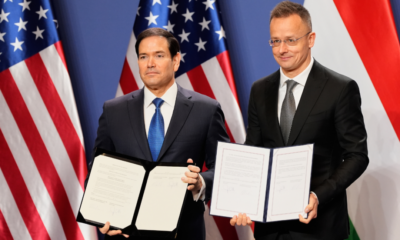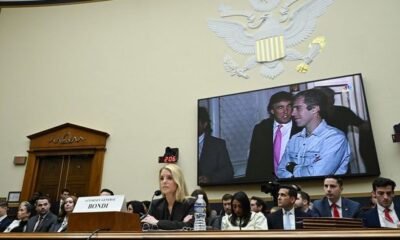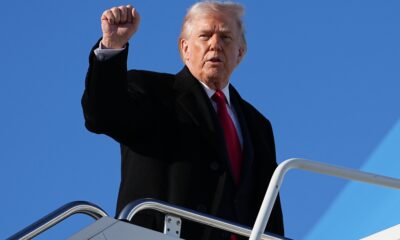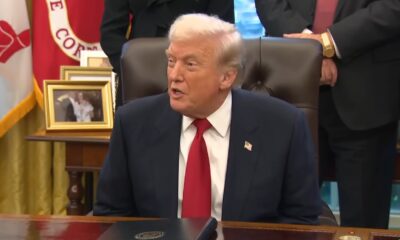World
Trump Enacts $100,000 Fee for H-1B Visa Applicants
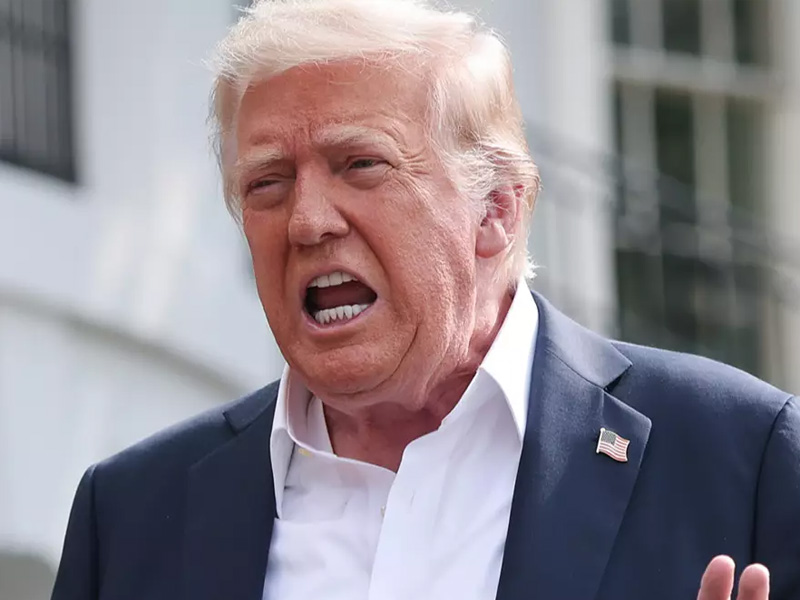
US President Donald Trump has signed an executive order imposing a significant annual fee of $100,000 for applicants seeking to obtain the H-1B visa, aimed at skilled foreign workers. This measure, which takes effect on September 21, 2023, is framed as a response to what the administration describes as “abuse” of the visa program and mandates that only applicants who pay this fee will be allowed to enter the United States.
The new directive applies solely to new applications, with companies required to pay this fee for each applicant over a six-year period. US Commerce Secretary Howard Lutnick highlighted the financial implications for businesses, stating, “The company needs to decide… is the person valuable enough to have a $100,000-a-year payment to the government, or they should head home, and they should go hire an American.” According to Lutnick, major corporations are supportive of this change.
Previously, administrative fees for the H-1B visa were approximately $1,500. The cap on H-1B visas has remained at 85,000 annually since 2004, but the number of applications has dropped to roughly 359,000 for the upcoming fiscal year, marking the lowest filing rate in four years, as reported by the U.S. Citizenship and Immigration Services (USCIS).
The executive order has sparked considerable backlash from various stakeholders. Immigration attorney Tahmina Watson warned that this fee could significantly hinder many small businesses and start-ups, stating, “Almost everyone’s going to be priced out. This $100,000 as an entry point is going to have a devastating impact.” Similarly, Jorge Lopez, chair of immigration and global mobility at Littler Mendelson PC, criticized the decision, asserting that it “will put the brakes on American competitiveness in the tech sector and all industries.” He cautioned that some companies may consider expanding their operations outside the United States due to these new financial burdens.
Tech giants such as Amazon, Tata, Microsoft, Meta, Apple, and Google have historically been among the largest beneficiaries of the H-1B program. Critics argue that the program undermines American workers, while advocates, including figures like Elon Musk, assert that it is essential for attracting top global talent to the U.S.
In addition to the new fee structure, Trump has introduced a “gold card” visa designed to expedite immigration for select applicants, with fees starting at approximately £1 million. The ongoing debate surrounding H-1B visas has revealed deep divisions among Trump’s allies. During his campaign, Trump promised to streamline the process for attracting foreign talent and even proposed pathways to green cards for college graduates. However, earlier in his presidency, he enacted tighter scrutiny measures for H-1B applications, with rejection rates peaking at 24% in 2018.
Particular concern has arisen in India, which is the largest source of H-1B applications. Businesses there fear that the new restrictions will further limit opportunities for skilled professionals aiming to work in the United States. The implications of this executive order are likely to reverberate across various sectors, shaping the future landscape of the H-1B visa program.
-

 World2 months ago
World2 months agoCoronation Street’s Shocking Murder Twist Reveals Family Secrets
-

 Entertainment2 months ago
Entertainment2 months agoAndrew Pierce Confirms Departure from ITV’s Good Morning Britain
-

 Health6 months ago
Health6 months agoKatie Price Faces New Health Concerns After Cancer Symptoms Resurface
-

 Health4 weeks ago
Health4 weeks agoSue Radford Reveals Weight Loss Journey, Shedding 12–13 kg
-

 Entertainment7 months ago
Entertainment7 months agoKate Garraway Sells £2 Million Home Amid Financial Struggles
-

 World3 months ago
World3 months agoEastEnders’ Nicola Mitchell Faces Unexpected Pregnancy Crisis
-

 Entertainment6 months ago
Entertainment6 months agoAnn Ming Reflects on ITV’s ‘I Fought the Law’ Drama
-

 World3 months ago
World3 months agoBailey Announces Heartbreaking Split from Rebecca After Reunion
-

 Entertainment3 months ago
Entertainment3 months agoCoronation Street Fans React as Todd Faces Heartbreaking Choice
-

 Entertainment2 months ago
Entertainment2 months agoDavid Jason and Nicholas Lyndhurst Eye Reunion for Only Fools Anniversary
-

 Entertainment3 months ago
Entertainment3 months agoBradley Walsh Sparks Strictly Come Dancing Hosting Speculation
-

 Entertainment2 months ago
Entertainment2 months agoTwo Stars Evicted from I’m A Celebrity Just Days Before Finale

